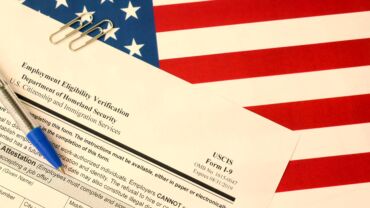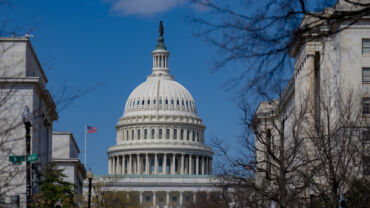A partner at a global law firm recently urged businesses to follow the case law around paid military leave and the Uniformed Services Employment and Reemployment Rights Act (USERRA). Recent rulings and several other pending lawsuits claiming that employers must provide paid military leave if they provided paid leave for comparable non-military absences should be considered by businesses to ensure compliance with this broad reaching law.
Background and functions of USERRA
USERRA was enacted in 1994 and provides service members with specific rights regarding reemployment, retention of benefits, and protection against discrimination based on their military service. It mandates that employers allow eligible employees to take leave for military service while ensuring their right to return to their civilian jobs with accrued seniority and benefits.
Jeff Kopp, a partner at Foley and Lardner, LLP, explained that USERRA generally does three things. “It makes sure that service members are not disadvantaged in their career because of their military service, it requires the employers to promptly reinstate military employees after they complete their service, and it prohibits discrimination against individuals or employees because of their service in the uniformed services.” He added that “the discrimination and the reinstatement are the key things, but there are obviously a lot of nuances under USERRA that involve benefits and pay and other things.”
USERRA and paid leave
USERRA, which is administered by the U.S. Department of Labor (DOL) through the Veterans’ Employment and Training Service (VETS), ensures that employees on military leave are generally entitled to continue their employer-sponsored health insurance for themselves and their dependents for a limited time. Employers may also be required to provide pension benefits accruals during the military leave period. However, the Act does not mandate paid military leave, although employers might offer it voluntarily or as part of employee benefits.
“The pay issue is a really interesting question because the statute itself provides non- seniority employment benefits for service members who need to go and perform military service,” said Kopp, a retired Colonel in the U.S. Army Reserves. He added that the U.S. Department of Labor’s position on USERRA is that “an employer may have to pay for military leave or pay an employee who exercises military leave if they provide pay to those employees who are on comparable forms of leave.”
Courts weigh in on paid military leave
Earlier in 2023, a ruling from the Ninth Circuit highlighted the potential need for legislative clarity regarding paid military leave under USERRA. This class action lawsuit was brought by a commercial airline pilot and military reservist who alleged that because his employer- provided paid leave for non-military leaves, including jury, duty, bereavement, and sick leave, the employer must also pay its pilots during short-term military leaves of 30 days or less.
“You get into the analysis of how comparable the military leave is to other forms of leave that the employer provides paid leave for,” Kopp said about the case, which was remanded back to the district court for further analysis for a few reasons, including the Ninth Circuit disagreeing with the district court that a reasonable jury could not find military leave comparable to non-military leave.
“If the court is saying that jury duty and bereavement leave and all these other things are jury questions – if you pay employees when they exercise their legal rights under those other types of statutes – then a military employee who’s exercising leave under USERRA, if they’re not being paid, they have potential claims,” Kopp noted.
In another case, the Eleventh Circuit ruled in June of 2023 that military leave is comparable to paid administrative leave under USERRA. The Court concluded that both forms of leave were similar in terms of control in that “military employees do not control when they will be summoned for active-duty service.”
Importance of compliance
Both the Ninth and Eleventh Circuits illustrate some of the “nuances” regarding pay and benefits under USERRA that Kopp noted earlier and the importance of compliance under the law. “For all employers, I encourage them to review their leave policies and determine whether or not they might have compliance issues with USERRA if they’re taking a very black and white approach that military leave is unpaid,” Kopp advised. He warned that employers “not analyzing potential situations where other comparable leaves provide more generous benefits…could be in danger of violating USERRA or subjecting themselves to the risk of litigation.”
Kopp further advised human resource teams to examine their policies and factor into budgeting how paying for military leave impacts the business operations and to make sure “their payroll teams are on board with that.” Due to these rulings and the other pending cases regarding paid military leave under USERRA, employers should continue to follow any related court cases and revisit their policies to ensure compliance remains in place. “A lot of companies that think military leave is unpaid [are] just not following or keeping up with some of the case law that’s happening in this area,” Kopp said.
To learn more about how Checkpoint’s payroll solution can help your business, visit https://store.tax.thomsonreuters.com/accounting/Practice-Area/Payroll/c/2400.










